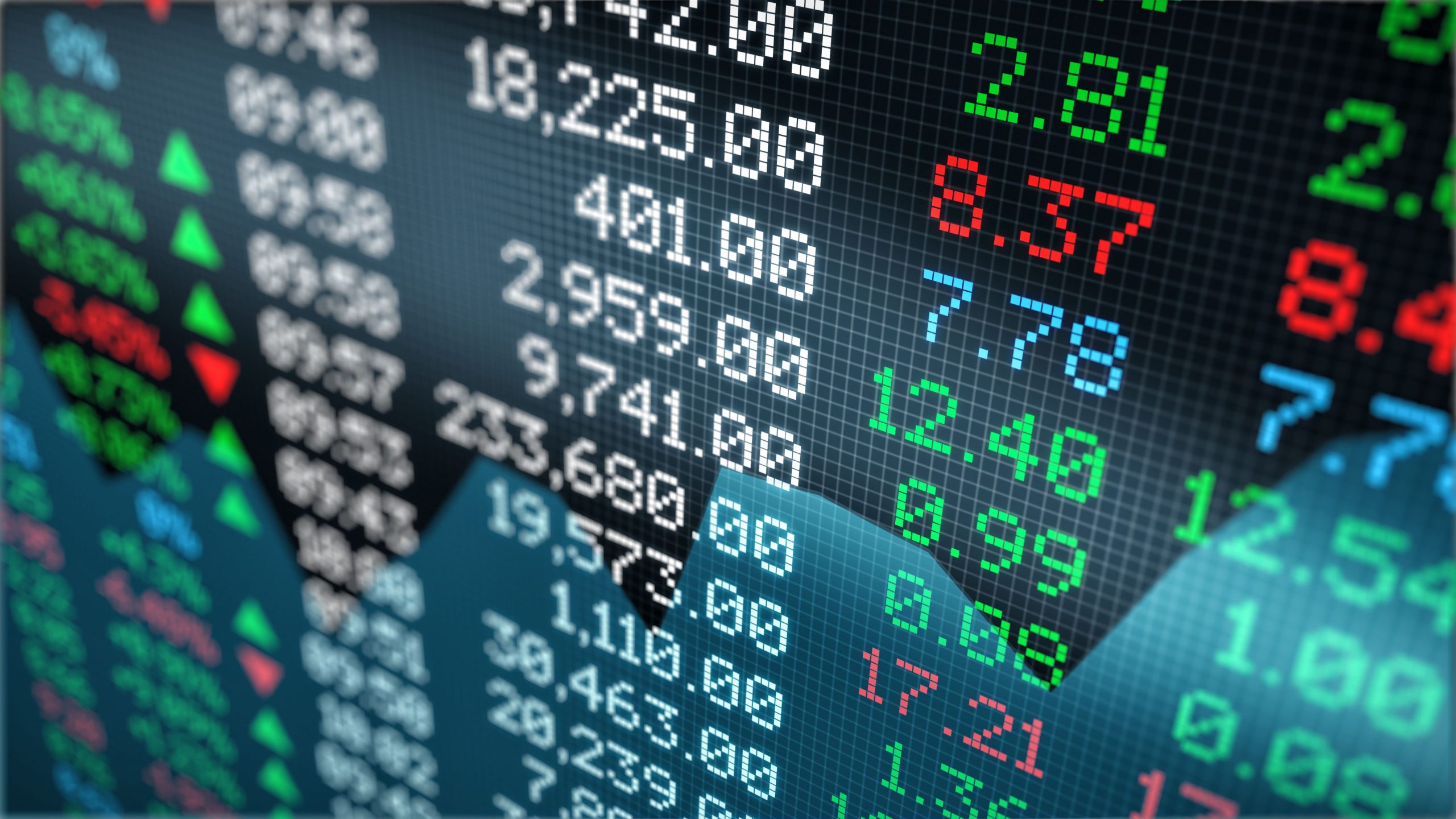Europe’s Big Market turns Red

John E. Kaye
- Published
- News

On Tuesday, soaring stocks stalled and high-flying currencies such as the euro and Australian dollar lost altitude, as a weeks-long risk rally hit turbulence.
Asian equities however had scored their ninth day of gains after landmark highs by Wall Street on Monday, however Europe’s big markets opened with a lurch and were 1.1% in the red by the time a bumpy U.S. restart loomed.
The euro dipped 0.2% in its second drop in the past 11 days and safe bonds were back in favour, while another barb from China, in its spat with Canberra, saw the Australian dollar drop by 1%, having only just set a 10-month high.
“It fells like the FX market is looking at the equity market and thinking perhaps we should position for a correction,” said Societe Generale strategist Kit Juckes, referring to the recent surge in global equity markets.
“It is going to depend on what the U.S. market does today as we have the FOMC (U.S. Federal Reserve policy announcement) tomorrow … but why wouldn’t you buy some yen at this point?”
The optimism for equity markets came last week after U.S. jobs data showed a sharp decline in the unemployment rate. Wall Street indices surged, with the Nasdaq closing at a record level on Monday.
Global markets were mauled in March amid concern over both the short- and longer-term damage to the world economy from the COVID-19 pandemic. But many indices are now back to pre-COVID-19 levels.
MSCI Asia ex-Japan’s overnight advance had set its longest winning streak since early 2018. The 49-country world index is up nearly 45% from 4-year lows struck in mid-March.
“The good news is that this shows central banks’ effort to stabilise the market have worked,” said Tai Hui, chief Asia market strategist at J.P. Morgan Asset Management.
Nevertheless, fears of renewed trade tensions between the United States and China and the second-round impact from higher unemployment and bankruptcies are hanging over the outlook.
In its latest Global Economic Prospects report on Monday, the World Bank said advanced economies are expected to shrink 7.0% in 2020, while emerging-market economies will contract 2.5%, their first slump since aggregate data became available in 1960.
On a per-capita gross domestic product basis, the global contraction will be the deepest since 1945-46, when World War Two spending dried up.
BEARS BITE BACK
Tuesday’s wobble in markets saw the safe-haven Japanese yen head as high as 107.93, while the U.S. dollar’s gains elsewhere saw the greenback index make its best spurt since May 22.
Big emerging market currencies such as China’s internationally traded yuan, Brazil’s real and Turkey’s lira backpedalled, while Europe’s stocks were led down by a 3% drop in eurozone bank shares after a six-day run of gains.
The mood shifted in commodity markets, too. Oil prices slipped over 1% in London after Brent had hit its highest in more than three months at $41 a barrel. Gold flipped higher as industrial metals copper, nickel and aluminum all fell.
“While OPEC+’s historic agreement was extended, Gulf nations’ extra voluntary production cut — a massive 1.2m bpd according to Prince Abdulaziz bin Salman — will also end this month,” said commodity strategists at TD Securities.
Written by Marc Jones
Sourced Reuters
For more Banking & Finance, and Daily news follow The European Magazine
RECENT ARTICLES
-
 WPSL targets £16m-plus in global sponsorship drive with five-year SGI partnership
WPSL targets £16m-plus in global sponsorship drive with five-year SGI partnership -
 Dubai office values reportedly double to AED 13.1bn amid supply shortfall
Dubai office values reportedly double to AED 13.1bn amid supply shortfall -
 €60m Lisbon golf-resort scheme tests depth of Portugal’s upper-tier housing demand
€60m Lisbon golf-resort scheme tests depth of Portugal’s upper-tier housing demand -
 2026 Winter Olympics close in Verona as Norway dominates medal table
2026 Winter Olympics close in Verona as Norway dominates medal table -
 Europe’s leading defence powers launch joint drone and autonomous systems programme
Europe’s leading defence powers launch joint drone and autonomous systems programme -
 Euro-zone business activity accelerates as manufacturing returns to expansion
Euro-zone business activity accelerates as manufacturing returns to expansion -
 Deepfake celebrity ads drive new wave of investment scams
Deepfake celebrity ads drive new wave of investment scams -
 WATCH: Red Bull pilot lands plane on moving freight train in aviation first
WATCH: Red Bull pilot lands plane on moving freight train in aviation first -
 Europe eyes Australia-style social media crackdown for children
Europe eyes Australia-style social media crackdown for children -
 These European hotels have just been named Five-Star in Forbes Travel Guide’s 2026 awards
These European hotels have just been named Five-Star in Forbes Travel Guide’s 2026 awards -
 McDonald’s Valentine’s ‘McNugget Caviar’ giveaway sells out within minutes
McDonald’s Valentine’s ‘McNugget Caviar’ giveaway sells out within minutes -
 Europe opens NanoIC pilot line to design the computer chips of the 2030s
Europe opens NanoIC pilot line to design the computer chips of the 2030s -
 Zanzibar’s tourism boom ‘exposes new investment opportunities beyond hotels’
Zanzibar’s tourism boom ‘exposes new investment opportunities beyond hotels’ -
 Gen Z set to make up 34% of global workforce by 2034, new report says
Gen Z set to make up 34% of global workforce by 2034, new report says -
 The ideas and discoveries reshaping our future: Science Matters Volume 3, out now
The ideas and discoveries reshaping our future: Science Matters Volume 3, out now -
 Lasers finally unlock mystery of Charles Darwin’s specimen jars
Lasers finally unlock mystery of Charles Darwin’s specimen jars -
 Strong ESG records help firms take R&D global, study finds
Strong ESG records help firms take R&D global, study finds -
 European Commission issues new cancer prevention guidance as EU records 2.7m cases in a year
European Commission issues new cancer prevention guidance as EU records 2.7m cases in a year -
 Artemis II set to carry astronauts around the Moon for first time in 50 years
Artemis II set to carry astronauts around the Moon for first time in 50 years -
 Meet the AI-powered robot that can sort, load and run your laundry on its own
Meet the AI-powered robot that can sort, load and run your laundry on its own -
 Wingsuit skydivers blast through world’s tallest hotel at 124mph in Dubai stunt
Wingsuit skydivers blast through world’s tallest hotel at 124mph in Dubai stunt -
 Centrum Air to launch first European route with Tashkent–Frankfurt flights
Centrum Air to launch first European route with Tashkent–Frankfurt flights -
 UK organisations still falling short on GDPR compliance, benchmark report finds
UK organisations still falling short on GDPR compliance, benchmark report finds -
 Stanley Johnson appears on Ugandan national television during visit highlighting wildlife and conservation ties
Stanley Johnson appears on Ugandan national television during visit highlighting wildlife and conservation ties -
 Anniversary marks first civilian voyage to Antarctica 60 years ago
Anniversary marks first civilian voyage to Antarctica 60 years ago



























